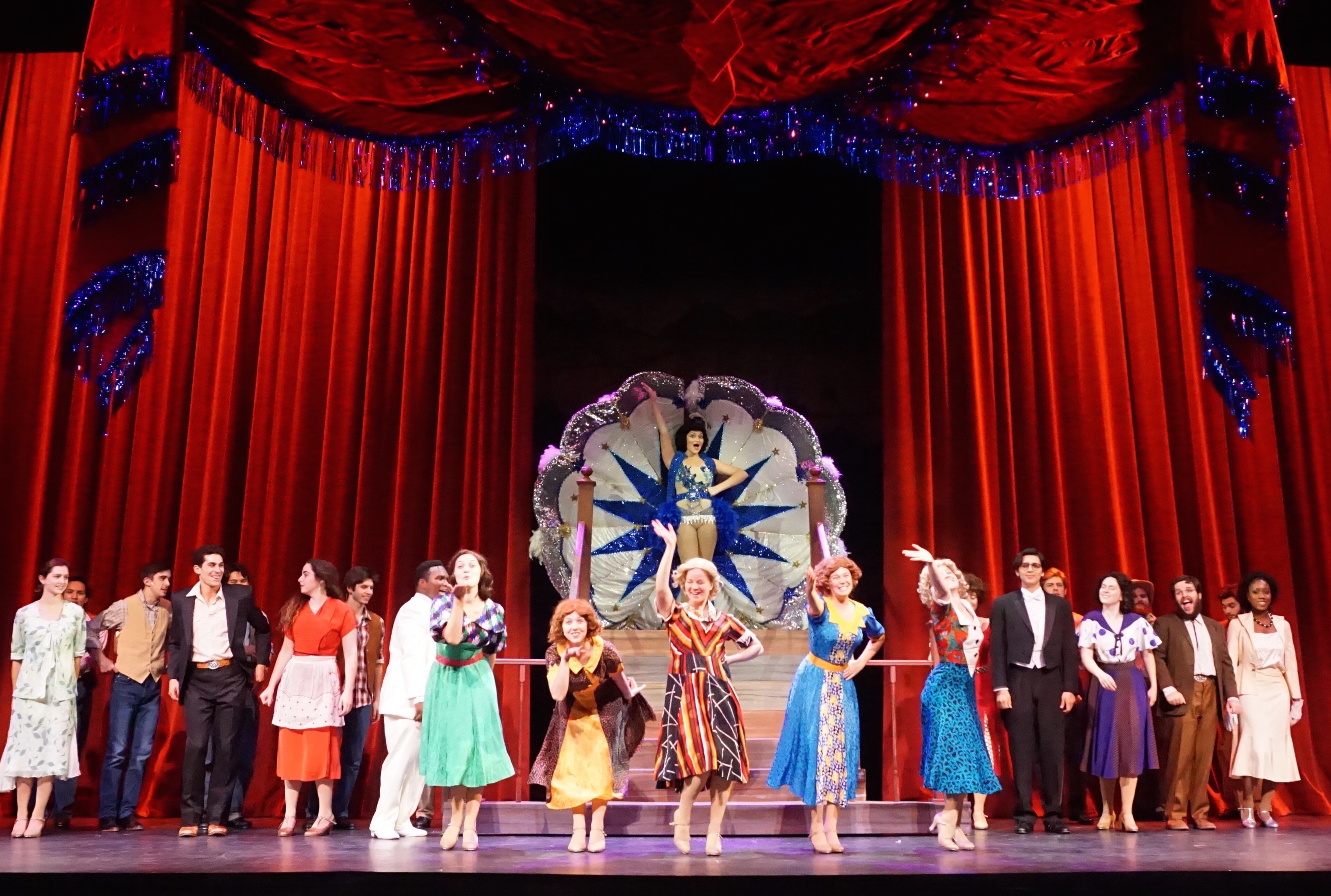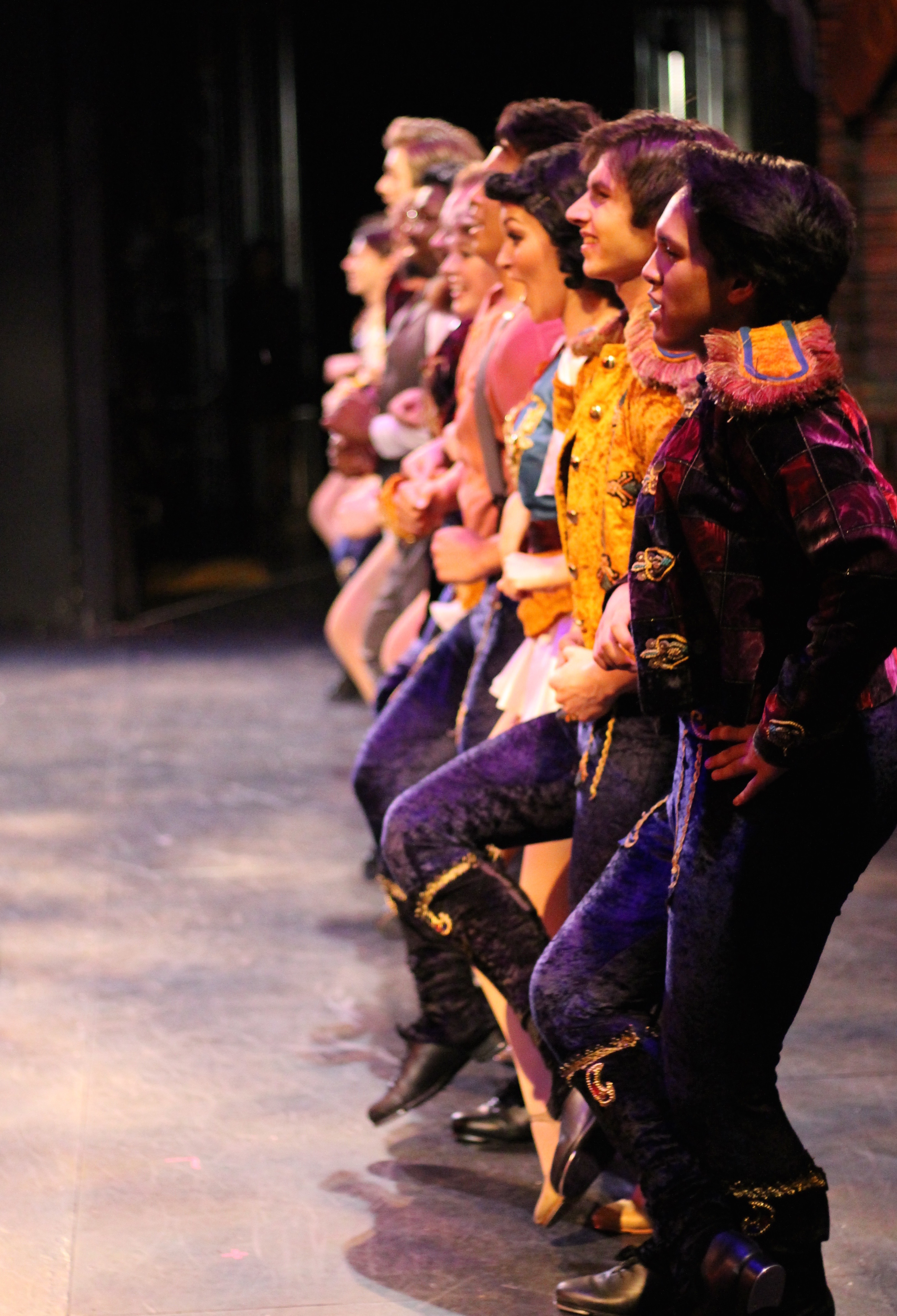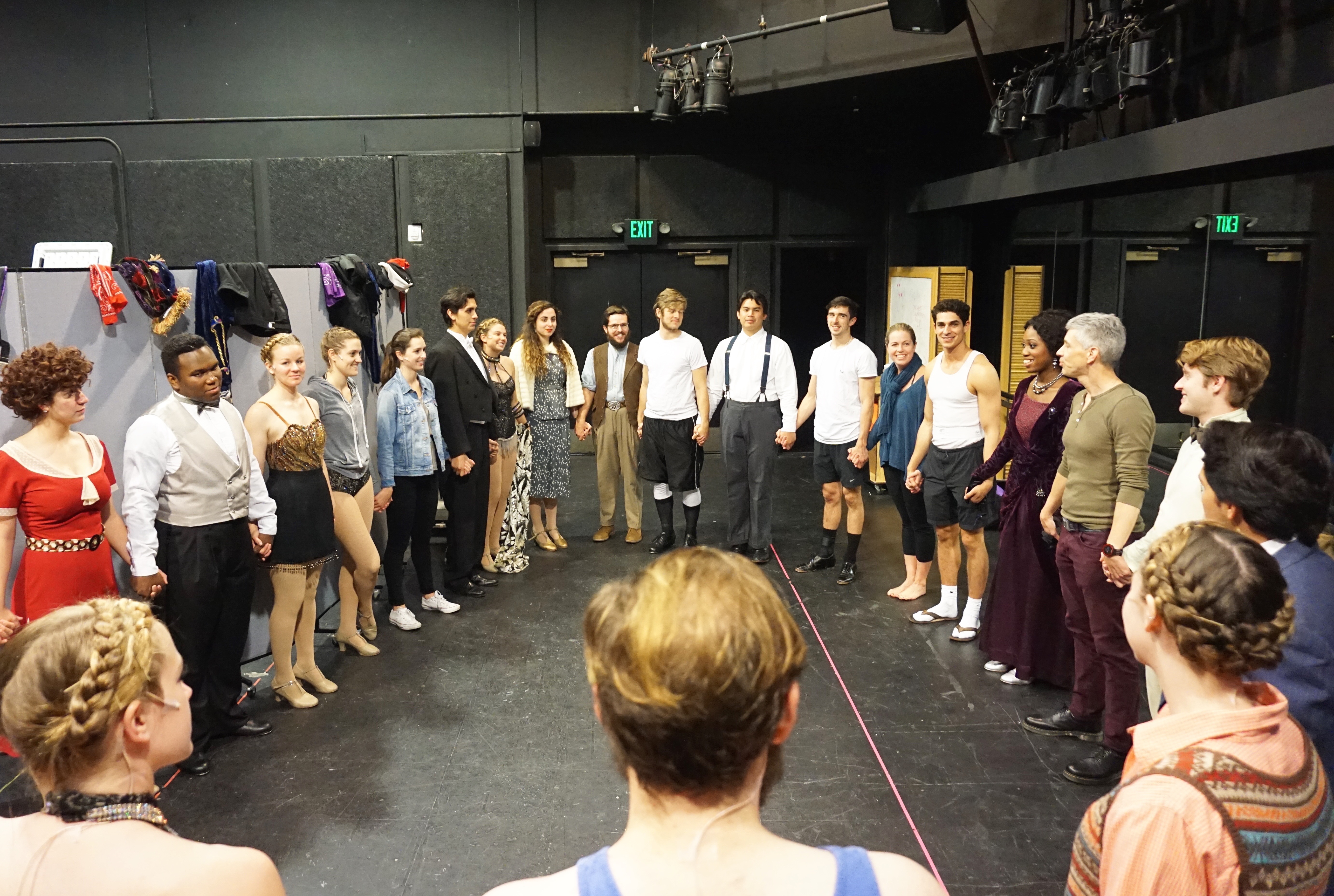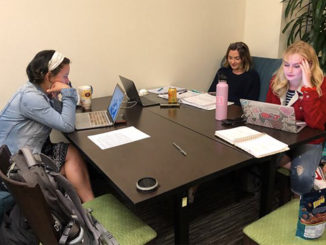
140 hours.
That’s the average amount of time theater majors put into one show at Pepperdine University, between rehearsals and working behind the scenes as crew.
A Pepp Post poll of 35 theater majors found that more than 70 percent believe being a theater major largely affects their time and ability to engage in other extracurriculars. Theater majors trying to participate in non-theater extracurriculars sometimes struggle because of the requirements of the program.
“Theater is your extracurricular activity,” Scott Smith, visiting assistant professor of theater, said. “Theater is really demanding, and can become your university life.”
How does theater scholarships impact the majors?
Students with theater scholarships must put in 100 hours of work each semester toward their scholarship in crewing shows, Smith said. Of about 60 theater majors, 75 percent receive a theater scholarship of varying amounts, according to Pepperdine’s Fine Arts scholarship website.
Pepperdine’s theater department produces four mainstage productions each year, Smith said. There is a fall play, a fall musical, a January show and a spring show.
“Productions happen at night and rehearsals happen at night,” Smith said. “It is every weekday after classes from 6 p.m. to 10:30 p.m., and then weekend rehearsals occur for most of the day Saturday.”
Scholarship students must audition for every production, and if they are not cast in the show they are then required to work crew on at least one show per semester, or until they have fulfilled their required 100 hours of work, Smith said.
In past years, scholarship students used a time clock to keep track of their completed hours. This year clocking in is no longer allowed to keep track of hours, Reed Williams, junior theater and media production major, said.
This is because by law, Pepperdine can no longer set a minimum number of hours that students must fulfill for their scholarship, Bradley Griffin, associate professor of theater, said. They currently do not have a way of tracking the hours, but faculty and scholarship students still refer to their being a 100-hour requirement, and current scholarship students signed a contract for 100 hours of crew work.
Crew members clean the stage, set props, move scenery, take down and set up sets, Cathy Thomas-Grant, divisional dean of Fine Arts, said. The scholarship students on crew also load-in and load-out, where they assemble the set on stage. This usually takes up most of a weekend. In the past, load-ins and load-outs have taken place during Waves Weekend and Easter Sunday, prohibiting students from having parent visitors or Easter celebrations, Thomas-Grant said.
Pepperdine’s closing performance of the musical “Crazy for You” (Photo courtesy Brit Rivera).
Non-scholarship students are not required to audition for any productions or be on crew for any of the shows. The majority of those on crew are scholarship students, and any non-scholarship students on crew do it for work-study or as a paid position, Griffin said.
However, professors expect everyone within the theater major to participate in the productions one way or another, even if a student is not on scholarship, Thomas-Grant said.
“It is your choice but I expect everyone in my program to help contribute,” Thomas-Grant said. “I expect everyone in my program to become a theater maker in all aspects.”
The crewing requirement is what impacts the time of theater majors the most, Williams said. He also worked professionally on the TNT show “The Last Ship” his sophomore year and still remained on crew for his scholarship.
“I would wake up before sunrise almost every morning to film all day for TNT, then go to classes at Pepperdine midday, and then go to rehearsals until 10:30 p.m.,” Williams said. “I was worn very thin freshman year and would say I spend 40 hours a week doing theater.”
Williams said the time taken up in crew does not allow for him to relax and he wishes the time commitment benefited the acting aspect of the industry more.
Junior theater major Will Craig said he feels that working in any aspect of theater, even crew, is important. He also spends 40 hours a week doing theater, in which, 24 of those are in rehearsals, four in scene shop and 12 in classes. Working on a show is his social life, Craig said.
“Yes, it can be overwhelming at times and seem like a lot, but this is my passion,” Craig said. “So you push through it. It’s not always fun, but I’m working on my future.”
The Pepp Post survey found that roughly a third of theater majors spend 30 hours or more per week working on a production, and another 37 percent said they spent between 15 and 30 hours each week in the theater.
Can theater majors join Greek Life?
In the Pepp Post poll, roughly 37 percent of theater majors are involved in one other extracurricular besides theater. A Pepp Post poll of 15 non-theater majors who participate in theater found that 36 percent are involved in at least two extracurriculars. Some 30 percent of theater majors involved in other extracurriculars said they were involved in Greek life.
“I am in a fraternity and would love to be able to go to our fraternity philanthropy,” junior theater major Billy Baker said. “I have yet to have gone in two years.”
Baker is not on scholarship and therefore is able to choose what productions he wants to be involved in, he said.
Evan Colburn, a junior sports medicine major and previous theater major, said he did find it manageable to rush Alpha Tau Omega fraternity as a theater major. However, once he began to work on the musical it became more of a challenge.
“I think it is fair to say that the theater program becomes a fraternity or sorority in its own way to many theater majors,” Griffin said.
Can theater majors go abroad?
Theater majors are also not able to go abroad if they want to retain their scholarship, Thomas-Grant said.This is because if they go abroad they cannot fulfill their scholarship requirement of 100 work hours in crewing.
“I dropped being a major so I could have the opportunity to go to Lausanne, Switzerland,” Andrea Wigginton, junior international management major, said.
Pepperdine theater does try and offer an alternative to abroad. The major offers a summer in Scotland, where theater students perform a play in the Edinburgh Festival Fringe.The festival is the world’s largest arts festival, Thomas-Grant said. This is offered for all theater majors, but mainly scholarship students who would have to drop their scholarship if they went abroad.
This past summer Pepperdine won the prestigious Scotsman’s First Fringe award given to an outstanding new theater work and new writing, for their production of “The Interference.” It is a play about speaking the truth.
Performers participate in a pre-show circle to prepare for the first performance of “Crazy for You” (Photo courtesy Brit Rivera).
What do students and faculty think about the commitments?
Junior economics major Brooks Robinson said he chooses to become involved in theater productions on his own. He makes time in his academic schedule and with his major to work around rehearsals. Robinson said he feels that when he commits to a production, he is committing to that above all.
“Working on a production of a show means time management is important,” Hollace Star, assistant professor of theater, said.
Doug Hurley, associate dean of students for Student Activities and Campus Recreation, said Pepperdine students choose to get involved in co-curriculars or take on a major that is time-intensive. Hurley compared the time management needed to be a theater major to the time managment needed in other co-curriculars, like Dance in Flight.
Shannon Hansen, a junior journalism major, said time management at Pepperdine is important no matter what major you have.
“Being a journalism major is definitely a time commitment, especially if you’re working for The Graphic on top of your classes,” Hansen said. “It’s a lot of time and energy.”
Sports at Pepperdine also require a lot of time commitment, Jeremy Goldenetz, senior business administration major and member of the baseball team, said.
“I feel at times baseball does prohibit us from doing other stuff on campus, such as clubs and job fairs,” Goldenetz said. “Balancing school, baseball, social life and sleep can get pretty challenging.”
The time management needed at a school like Pepperdine, no matter what major, is reflective of the need to time manage in the real world, Smith said.
“I absolutely think our program is preparing our students to juggle many things when they graduate and go out into the field,” Thomas-Grant said.
Wigginton said she believes that the program itself is not strong enough to ask for all of these commitments. She thinks that dropping theater as a major has allowed her to grow as a person and therefore grow in her music and theater performances.
Craig said one chooses to be involved in the program, and that Pepperdine theater aims to create “theater makers.”
“Theater makers must dedicate their involvement to all aspects of show production and the program, including the huge time commitment,” Craig said.
Elizabeth Ford completed this story in Dr. Christina Littlefield’s fall 2016 Jour 241 class.





